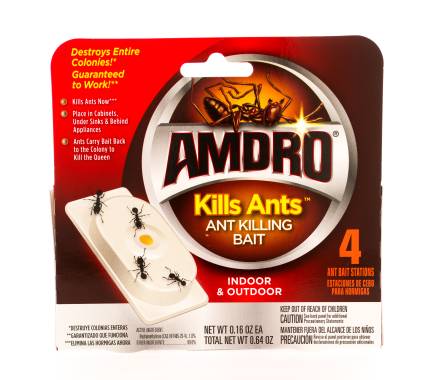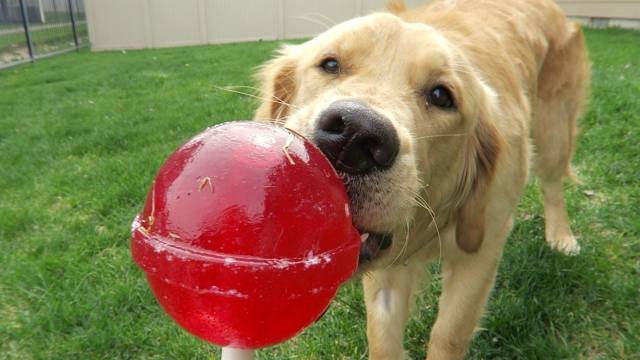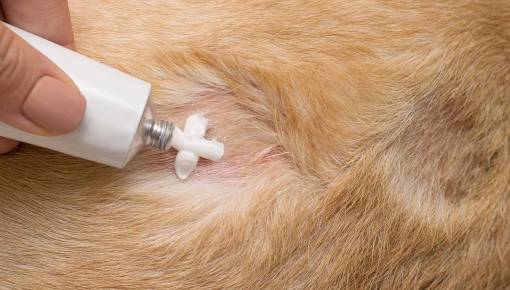Connect with a verified veterinarian in minutes. Licensed vets are available 24/7 to answer your questions. No need to worry about your furry family member.
Ants can be a huge problem during the warmer months. If you happen to leave sugar or some other food on the counter or in the trash, that’s enough to attract ants! The problem is that ants leave pheromone trails for their nestmates to follow, which means even more ants will come into your home.
When this happens, many people turn to ant poisons, such as Amdro ant killing bait. But what happens if your dog eats some Amdro ant killing bait?
Has your dog eaten Amdro ant killing bait? Are you worried that the Amdro ant killing bait will make your dog sick? If so, you’ve come to the right place. We understand it can be scary when your dog eats something like this.
We’ve gathered information about Amdro ant killing bait and whether it can make a dog sick. Let’s get started!
What is Amdro Ant Killing Bait?
Amdro ant killing bait is a product that’s used to kill ants. The product can be used to kill a wide range of ants, including fire ants, native fire ants, Argentine ants, bigheaded ants, and harvester ants.
The instructions on the Amdro ant killing bait say to use the product any time ants are active. It’s best to apply early in the morning or late in the afternoon when ants are their busiest.
While Amdro is safe for humans to use (only as directed), what about dogs? What happens if a dog eats Amdro ant killing bait?
Amdro Ant Killing Bait & Dogs
The good news is that Amdro ant killing bait is only slightly toxic to dogs. The product contains hydramethylnon, which is an organofluorine compound. It works by inhibiting complex III in the mitochondrial inner membrane, leading to oxidative phosphorylation, which damages cells.
Symptoms of Amdro Ant Killing Bait Ingestion in Dogs
You may notice these symptoms if your dog has eaten Amdro ant killing bait:
- Diarrhea
- Vomiting
- Nausea
- And other symptoms
If you notice these or other symptoms in your dog, call the vet right away. This may be an emergency.
This could be an emergency if your dog has eaten a large amount of the ant killing bait. However, that’s very rare. Even so, it’s a good idea to have your dog checked by the vet.

Review symptoms, medications & behavior to keep your pets healthy with a Vet Online in just minutes.
Ask a Vet Live NowTreatment of Amdro Ant Killing Bait Ingestion in Dogs
The vet may try to induce vomiting and use activated charcoal to remove the toxin from your dog’s system. This is done to decontaminate your dog’s body.
In some cases, your fur baby may require an IV with fluids and to administer medications. Dogs that are experiencing persistent diarrhea and vomiting may become dehydrated. The fluids in the IV work to rehydrate the dog and also flush the toxin out of his system.
The good news is that most dogs will make a full recovery after eating Amdro ant killing bait! In the future, it’s best to keep Amdro ant killing bait and all other household chemicals out of your dog’s reach. You’ll both be happier for it!
Connect with a verified veterinarian in minutes. Licensed vets are available 24/7 to answer your questions. No need to worry about your furry family member.

Julie
Julie is a graduate of the University of North Carolina, Wilmington, where she studied Animal science. Though contrary to the opinion of her parents she was meant to study pharmacy, but she was in love with animals especially cats. Julie currently works in an animal research institute (NGO) in California and loves spending quality time with her little cat. She has the passion for making research about animals, how they survive, their way of life among others and publishes it. Julie is also happily married with two kids.
Review symptoms, medications & behavior to keep your pets healthy with a Vet Online in just minutes.
Ask a Vet Live Now





